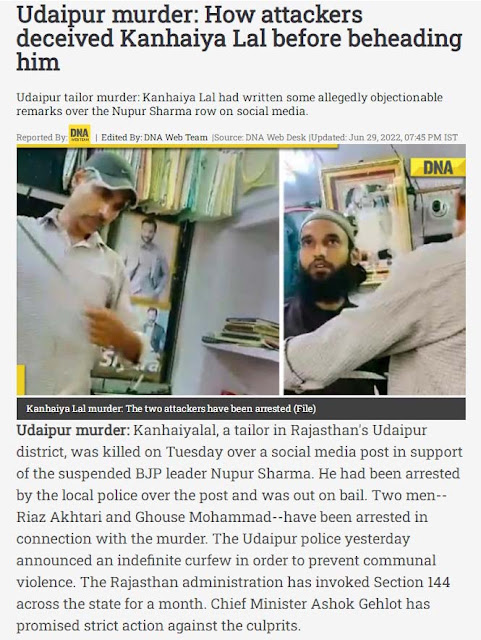society review by maureen freely
Why Salman Rushdie's book was burned
Sunday, January 9, 2011
In the opening pages of this dense but fascinating polemic, Kenan Malik describes how the fatwa against Salman Rushdie changed his life. The Indian-born son of a Hindu mother and a Muslim father, Malik had grown up in Britain amid "Paki-bashers" and the racist National Front. It was racism that had driven him into far-left politics as a student, but it was the Enlightenment ideals of equality and social justice that he took with him when he graduated. Malik became a research psychologist and occasional journalist with a commitment to activism.
In January 1989, he was shocked when 1,000 Muslims marched through the northern city of Bradford and ceremonially burned a copy of Salman Rushdie's novel "The Satanic Verses" in front of a police station. Almost overnight, he writes, the image of that burning book became an international "icon of the rage of Islam." Yet it made no sense to Malik, who had organized anti-racist protests in Bradford three years earlier. Where had the rage come from? And why was it dressed in religious clothing?
He received his first answer from a man Malik identifies only as Hassan, a former Trotskyite and an acquaintance who had become disaffected with the "white left" and with the fearful and obsequious Muslims of their fathers' generation. Hassan saw a "need to defend our dignity as Muslims" so that no one - "racist or Rushdie" - could trample on it. Hassan had become an "errand boy to the mullahs," Malik writes, "inspired by bookburners, willing to shed blood for a thousand-year-old fable that he had never believed in."
In the chapters that follow, Malik charts the circuitous route by which Hassan and so many others found solace in a virulently anti-Western, political Islam that bore little relation to the faith of their immigrant parents, for whom religion was "deeply embedded [but] never all-consuming," expressing "a relationship with God, not a sacrosanct public identity." If Britain now has a problem with homegrown suicide bombers, it is, he asserts, because of policies that have not only impeded integration but have taught an entire generation of immigrants that they are not truly British, that they do not - and never will - belong.
Malik looks favorably upon the United States, which in his view sees itself as a nation of immigrants and so offers a positive narrative for newcomers. Britain, however, has kept immigrant communities separate. Rather than address immigrants directly, it has handed them over to the care of self-appointed community leaders who use their positions to enrich themselves and push a conservative religious agenda. It is they who have created a breeding ground for Islamist fundamentalism.
Malik argues that jihad as we understand it is a thoroughly modern concept, forged not just in the mountains of Afghanistan but in Western cities. He shows how the media and the wizards of geopolitics stoked the fire from the outset, with the book-burners of Bradford becoming pawns in a power struggle between Iran and Saudi Arabia. Each had been investing ambitiously in organizations in Britain and elsewhere to promote its own extreme brand of Islam.
Though by issuing a fatwa the Ayatollah Khomeini got the upper hand in the Rushdie controversy, Britain's Muslims did not take orders from any imam or ayatollah. The bombers who took part in the coordinated attacks on London's transportation system in 2005 were influenced by al-Qaeda and the Taliban. But, Malik says, they were full of Western narcissism - middle-class, entitled, disinclined to deny themselves modern pleasures. Their ease with contemporary mores cut them off from Islamic traditions. "Today's jihadist does not submit himself to the will of the collective," Malik writes. "Only through death do jihadists join their imagined community."
After beginning his story with a book-burning, Malik ends it with the bombing nearly 20 years later of the London publisher of Sherry Jones's "Jewel of Medina," a novel about the prophet Muhammad's youngest wife. The Rushdie book-burning in 1989 sparked intense debate over the reach of free expression, especially when it offends religious sensitivities. By the time of the 2008 bombing, however, it was generally accepted that free speech must take into account Britain's many diverse religions - which sounds likes a move toward greater tolerance and integration.
But in Britain the issue is more complicated than that. The nation lacks an equivalent of the First Amendment, and though it has a tradition of free expression, there is no clear legal defense for it. Since 2008, it has been illegal to incite religious or racial hatred. Because the law is vaguely worded, it can be used against anyone who criticizes religion in the public domain. Britain's unelected Muslim leaders were among those who proposed the law, and they continue to have a powerful influence on the definition of religious hatred, both in the courts and in the media.
Few writers have untangled the paradoxes and unintended consequences of political Islam as deftly as Malik does here. But in the end his real subject is not Islam. It is Britain's mismanagement of immigration and how this has led to the weakening of its purchase on Enlightenment values and, most particularly, free expression. Though confined to the British case, the book offers a cautionary tale that will speak to everyone concerned about the worldwide erosion of civil and human rights after Sept. 11, 2001.
bookworld@washpost.com
Maureen Freely is a professor at the University of Warwick and the translator of five books by the Turkish novelist and Nobel laureate Orhan Pamuk.
FROM FATWA TO JIHAD
The Rushdie Affair and Its Aftermath
By Kenan Malik
Melville House. 266 pp. $25



No comments:
Post a Comment